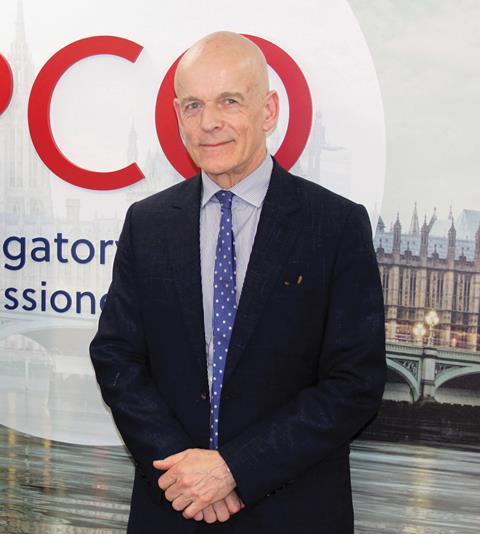Whenever something goes terribly wrong, the first thing ministers do is to call in a judge. The judiciary’s reputation for fearless fact-finding offers the best hope of restoring public confidence. But how bad does it have to get for the government to recruit a serving lord justice of appeal and no fewer than 15 former judges from across the UK?

Sir Adrian Fulford (pictured) and his team of judicial commissioners – as the retired senior judges are called – have been appointed under the Investigatory Powers Act 2016 to review each ministerial warrant issued under the act. They started work last week at an office in central London. On their shoulders will rest the public’s trust in the entire secret state – the security and intelligence services, the police and other law enforcement agencies that use covert powers to protect us all.
Ministers have power to issue warrants for targeted interception of communications – what used to be called wiretapping – and for ‘equipment interference’, effectively computer hacking. In a ‘double-lock’ introduced by the new legislation, commissioners must then decide whether to approve those warrants.
‘They will say “yes” or “no” and perhaps occasionally “maybe”,’ Fulford told me. ‘There will be around four judicial commissioners on duty at any one time and they will be considering everything from applications to hold significant quantities of bulk data through to highly particular requests to bug, for example, a notorious armed robber in the lead-up to the gang’s latest heist.’
Fulford holds the post of investigatory powers commissioner. His office, known as IPCO, is expecting around 3,000 applications a year for interception warrants and a further 4,000 applications from agencies seeking authorisations for property interference, intrusive surveillance and similar powers. Fulford provides general guidance for the 15 commissioners as well as hearing appeals when they refuse warrants.

What test will IPCO use when deciding whether to approve a warrant? Section 23 of the Investigatory Powers Act says the commissioner must review the necessity and proportionality tests applied by the minister who granted the warrant. In doing so, the commissioner ‘must apply the same principles as would be applied by a court on an application for judicial review’.
But judicial review, at least when the courts are applying principles associated with the Wednesbury case, has traditionally been more concerned with the mechanics of a decision rather than its merits. When the new act was first proposed, I recall suggesting to Home Office officials that tests such as irrationality were not much of a safeguard.
That message seems to have been heeded. The commissioners would not be able to maintain public confidence if they applied a test of Wednesbury reasonableness. So Fulford has published a detailed advisory notice making it clear that the commissioners will apply the tests of necessity and proportionality, just as the courts would in a judicial review application based on human rights law or EU law.
In difficult or important cases, a commissioner may decide to take technical or legal advice before deciding whether to approve a warrant. IPCO has its own technology advisory panel headed by the leading statistician Sir Bernard Silverman, a former chief scientific adviser to the Home Office. Its standing counsel is Tom Hickman of Blackstone Chambers.
With the benefit of their advice, it is possible that a commissioner will be better informed about the capabilities of a device or a technique than the person who issued the warrant. Section 2 of the 2016 act requires ministers to consider whether information could be obtained by ‘other less intrusive means’ – for example, not monitoring people who happen to be in the same place as a target.
So what happens if the commissioner comes across something that might have persuaded the minister to take a different approach? Fulford’s answer is an interesting one and shows how different this process is from that of a court.
‘We couldn’t end up in the position where, because of additional information which we had obtained, we were approving a warrant that the minister would have refused,’ he said. And he would even send the papers back to the minister for reconsideration if new information fortified the case for a warrant. The commissioners’ role is to review decisions taken by ministers, not to take those decisions themselves.
After Edward Snowden leaked classified information from the US National Security Agency in 2013, its UK counterparts realised that they must be much more open about what they do – even though the details must remain confidential. ‘In the post-Snowden world,’ Fulford said, ‘security and law enforcement agencies can no longer claim to be allowed to work in the shadows regardless of whether particular details of their work actually need to be kept under wraps.’
By casting light on those shadows, Fulford and his commissioners are allowing that vital work to continue.
joshua@rozenberg.net



























1 Reader's comment